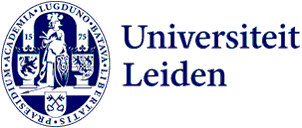
University Council at 50: ‘Everything in Leiden was a tad more Leiden’
After the May elections a new University Council has now taken seat. The university democracy is the result of the long-lived national student protests in 1969. Students from Leiden joined the protests for greater representation, although their actions were less revolutionary than at other universities. While they ‘occupied’ part of the Academy Building, exams continued regardless.
Note: this article was first published on 17 May, in the week of the university elections. On 9 June 2021 it is exactly 50 years ago that the first sitting of the Leiden University Council took place.
For the origins of the University Council we have to go back to the turbulent 1960s. Inspired by the fierce French student protests, Dutch students demanded more participation in the authoritarian universities there. They took to the streets en masse in 1969 and rowdily occupied university administration buildings. Students in Tilburg confiscated the rector’s office and renamed their university ‘Karl Marx University’. For days, Amsterdam students occupied the Maagdenhuis, the administration building of the University of Amsterdam.

Command centre in Academy Building
And what about Rapenburg in Leiden? What happened there? ‘Everything in Leiden was a tad more Leiden”,’ says sociologist Kees Schuyt in his book Op zoek naar het hart van de verzorgingsstaat. The shouting was less loud, the violence less violent, the demands less demanding and the occupation less occupying.’ In his recent book De glazen toren, historian Pieter Slaman also looks back at the protests in Leiden. He describes how it all began with a gathering of around 1,700 people in the Pieterskerk church, followed by the ‘occupation’, from 8 to 20 May, of the gewelfkamer in the Academy Building. The students discussed and planned their actions here, but the Academy Building stayed open and exams carried on regardless. The porter made sure it all remained decent.
‘The shouting was less loud, the violence less violent, the demands less demanding and the occupation less occupying.’
The University Council was given a lot of power
All those different types of student protest had some effect. The De Jong government relented and introduced a democratic governing system at the universities. The new University Council (UR), which started in Leiden in 1971, was initially given a lot of power. All proposals by the Executive Board had first to be approved by the UR, and the UR could even recommend to the minister that the president of the board be dismissed. The boards began to take more account of the wishes of the students and staff.
But it was often anything but harmonious. There were frequent heated debates in the council and these were not always about the university. In the 1970s, for instance, the UR wanted the Board to express its concern to the ambassadors of repressive regimes like in South Africa. In Leiden and outside, university administrators were worried about the extent of the student participation because they believed this caused more division and less resolution. The system also began to fall out of favour with politicians, and in 1997 the Kok I government curtailed the UR’s powers.

UR keeps the Executive Board on its toes
The powers of the University Council may have been curtailed, but it still has some influence, says Slaman. The Executive Board still has to present budgets and strategic plans to the UR and ask for advice. And the Board is aware that the plans will be assessed and are public. Slaman: ‘For matters that directly affect students and staff, such as a safe environment, teaching quality and working conditions, the University Council is still their main representative towards the Executive Board. This makes it a good idea for the Board to take account of the community’s voice.’ To channel the students from 1969: cherish your democratic right and vote this week.
Banner: Discussion during student protest in May 1969. Students talk to administrators in the Academy Building Photo: Eric Koch/Anefo
Text: Linda van Putte
